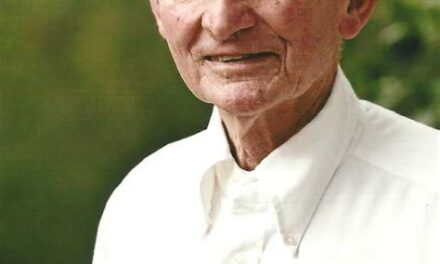On November 19th, the Gospel reading was, “The Parable of the Talents.” I have always been mystified and frightened by that parable because I feared being cast out to wail and gnash my teeth. I always thought its message was to work hard and achieve.
Our Deacon, however, gave a wonderful homily on the parable suggesting another meaning. He said God knows just what we are able to do and gives us the opportunities, sometimes humble. We cannot in pride say, “No, Lord, I am waiting for something great.” We have to start small and work towards what might be bigger, in order to be given greater opportunities — just as the dutiful servants were given more to make more.
If the man with one talent had just strived to do something he would have been better off than burying the coin or talent and returning it to judgment.
This very thing has been troubling me for years. I’ve been asking God to help me with this to no avail, it seemed. Or was I just totally blind to the answer? I have been a prideful person since I was a child — when I would try to do something, fail, and tell my bemused parents, “I canst do nothing!”
Then as I grew up, I met with failure after failure in every part of my life. I failed to become an animator. I failed to win the trip abroad to study. I passed the GRE but failed to get the assistantship I needed to get an M.A. in literature. I failed as a free-lance illustrator. I was a success as a legal secretary but loathed the thankless job. I failed to find love and marriage until late in life. I failed to become a mother.
I, the “big time artist,” was grateful to find a part-time job teaching art. Then I failed to publish a novel and to complete successive works. I began to see my creative works as useless and my view of myself, a failure.
I said to myself, “What is the use?” I put my books and art behind me as wastes of time when I could be doing “useful things” like washing dishes, doing laundry and caring for family members.
Now I think this kind of thinking is sent by the evil one, this thought I had no vocation. A temptation to bury the talent. When I listened this morning to the homily I thought, no, I have a vocation, not to be a great artist as you saw it but to do small things in art. Even if my graphic novels are only meant to be seen by God, maybe that is all He wants. I must stop listening to negative thoughts and find ways to balance the artwork with the drudge of work.
So, after Mass, I say to my husband, I must meditate on this Gospel reading right now. We come home and I listen to “Church and Culture,” my favorite radio program. It was a re-run but I listen again as it was a complicated interview with Robert R. Reilly on a renewal of beauty in classical music and new composers, which I knew little about.
Bob Reilly tells a strange story about the composer, Gian Carlo Menotti, who once visited Padre Pio. The host of the show, Deal Hudson mentions that Menotti was the homosexual partner of the American composer, Samuel Barber. When I looked up Barber to see if this was true, I found that Barber and Menotti bought a house together in Mt. Kisko, NY. I was there once having lost my way driving to Massachusetts, winding my way through its manor house horse farms and hand-built stone walls.
Then I read that Menotti wrote the music and the libretto for the opera, “Amahl and the Night Visitors” (1951) about the Three Kings who to visit young Amahl, a cripple, and his mother on the way to Bethlehem. As they leave, Amahl wants them to take his gift to the child and offers the only thing he owns, his crutch. When Amahl offers it, he is miraculously healed.
But my meditation on the homily was not yet over, then I came upon Robert Reilly’s interview with Cian Carlo Menotti from Crisis Magazine in 2001 which ends with Menotti talking about “The Parable of the Talents.”
God was truly speaking to me. Telling me not to bury my talent, or you, yours.














